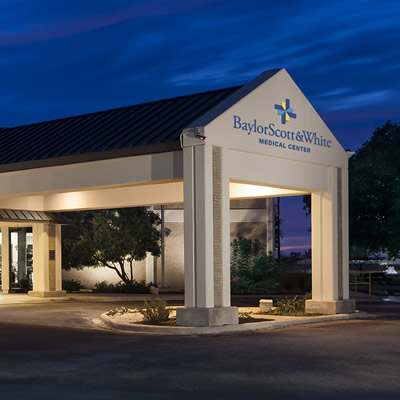Support and compassion through your fertility journey
Infertility is both physically and emotionally challenging. If you and your partner want to have a child and are having a difficult time conceiving, you can trust that you will find experienced, compassionate infertility care at Baylor Scott & White.
Our approach to fertility
Infertility concerns are often deeply emotional and personal, and your care team will help you explore available options. In the United States, roughly 11% of women and 9% of men experience infertility problems, and our teams can help both partners address the underlying conditions that can prevent successful conception.
-
Comprehensive care for women and men
Both women and men can experience problems conceiving, and in many couples, both partners may have health issues that affect fertility. Your fertility specialist has the knowledge to help identify who requires care and will create a treatment plan tailored to your unique needs.
For women, a specialist may recommend beginning treatment for conditions like endometriosis, uterine fibroids or any autoimmune condition that impacts your fertility. For men, treatments can address varicoceles, sperm disorders or ejaculation issues.
-
Innovative solutions for infertility
At Baylor Scott & White, you’ll find the latest treatment options for infertility. We offer assisted reproductive technologies, such as in vitro fertilization and intracytoplasmic sperm injection, egg preservation, different options for insemination and the latest genetic tests. Your specialist will help you navigate all these options and find the right solution for you.
-
Advanced uterus transplant program
The team with our uterus transplant program participated in clinical trials to improve and refine uterine transplants. Through this work, Baylor Scott & White became the first uterus transplant program worldwide to provide uterine transplants outside of clinical trials.
Our program helps women who have no uterus or whose uterus does not function. Conceiving with a uterus transplant requires in vitro fertilization, and your fertility specialist will use special techniques that improve embryo implantation and protect your uterus.
-
Emotional support throughout the process
Fertility treatments can be emotionally challenging. You will have a team dedicated to helping you stay encouraged and motivated and who can offer support when you need it.
Fertility care for every journey
Every person’s and every family’s journey to parenthood looks different. Your team at Baylor Scott & White can help you navigate fertility treatments and solutions that allow you to have the family you want, on your timeline.
Single-parent family building
Single-parent family building allows women or men to start families of their own and still have a genetic connection to their children, whether through egg or sperm donors, surrogacy or other means.
LGBTQ+ family building
We respect everyone’s desire to build their family. LGBTQ+ families can meet with our fertility specialists to discuss options tailored to your individual and family needs.
Egg preservation
Egg preservation, or freezing your eggs, offers a solution if you want to have a baby later in life. Your fertility specialist can discuss testing to see if you’re a candidate.
Our fertility treatments and services
When it comes to treating infertility, you and your partner have many options available. Your fertility specialist will likely start by treating any underlying conditions that could contribute to infertility. If you still need help, your specialist may recommend one of the following treatments.
In vitro fertilization
In vitro fertilization (IVF) combines medications and special techniques to allow sperm to fertilize an egg and for the resulting embryo to develop in the womb. The process can take a few months, but you and your partner will have support throughout the entire journey.
Intrauterine insemination
During intrauterine insemination (IUI), your fertility specialist places sperm directly into your uterus, typically when you’re ovulating. The goal is to reduce the time and distance sperm must travel to fertilize an egg. Also known as alternative or artificial insemination, intrauterine insemination may offer you and your partner a lower-cost alternative to IVF.
Sperm, egg or embryo donation
With egg or embryo donation, a donor or commercial source gives one or more eggs or embryos to a couple, and our facility uses IVF to aid in fertilization of the eggs. Donated eggs after fertilization or embryos may be implanted into your uterus or a gestational carrier. If you are interested in egg or embryo donation, your team can explain the process and work with you to find the resources you need. Sperm donation with either IUI or IVF is also available.
Genetic testing
Your fertility specialist offers two types of genetic testing.
Carrier testing can help identify whether you or your partner carry silent or recessive genes related to a genetic condition that may impact fertility or overall health.
Preimplantation genetic testing, typically done during IVF before implantation, can help determine whether an embryo has gene disorders or chromosomal abnormalities. These genetic issues may prevent an embryo from implanting in your uterus, increase your risk of a miscarriage or result in a birth defect.
Gestational carrying
Gestational carrying is when a woman cannot carry a pregnancy and the embryo created by IVF is placed in the uterus of another person, who carries the baby to term. A gestational carrier does not supply the egg. If you’re interested in working with a gestational carrier, your fertility specialist can walk you through the process and factors you should consider.
Find a fertility clinic near you
We help you and your partner get care for infertility and many other reproductive health concerns at a location that fits your needs. We offer several locations for your care, in North and Central Texas.
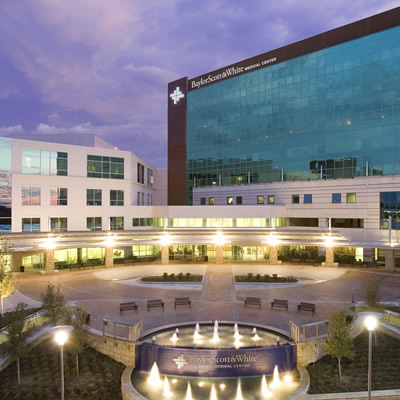
Andrews Women's Hospital at Baylor Scott & White - Fort Worth
1400 8th Ave , Fort Worth, TX, 76104
Baylor Scott & White All Saints Medical Center - Fort Worth
1400 8th Ave , Fort Worth, TX, 76104
Baylor Scott & White Breast Care Specialists of Texas
1250 8th Ave Ste 650, Fort Worth, TX, 76104- Monday: 8:30 am - 4:30 pm
- Tuesday: 8:30 am - 4:30 pm
- Wednesday: 8:30 am - 4:30 pm
- Thursday: 8:30 am - 4:30 pm
- Friday: 8:00 am - 1:30 pm

Baylor Scott & White Breast Care Specialists of Texas (Satellite)
6100 Harris Pkwy Ste 260, Fort Worth, TX, 76132
Baylor Scott & White Breast Specialists - Dallas
3410 Worth St Ste 235, Dallas, TX, 75246- Monday: 8:30 am - 5:00 pm
- Tuesday: 8:30 am - 5:00 pm
- Wednesday: 8:30 am - 5:00 pm
- Thursday: 8:30 am - 5:00 pm
- Friday: 8:30 am - 5:00 pm
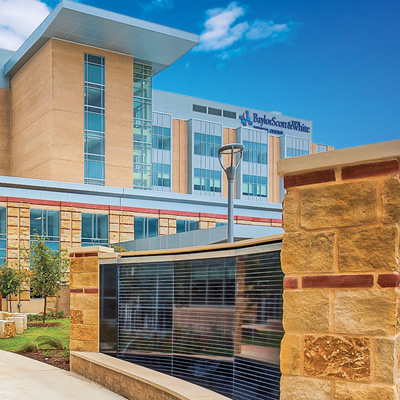
Baylor Scott & White Cancer Center - College Station
800 Scott and White Dr , College Station, TX, 77845- Monday: 8:00 am - 5:00 pm
- Tuesday: 8:00 am - 5:00 pm
- Wednesday: 8:00 am - 5:00 pm
- Thursday: 8:00 am - 5:00 pm
- Friday: 8:00 am - 5:00 pm

Baylor Scott & White Center for Reconstructive Urology
1101 6th Ave Ste 110, Fort Worth, TX, 76104- Monday: 8:00 am - 4:30 pm
- Tuesday: 8:00 am - 4:30 pm
- Wednesday: 8:00 am - 4:30 pm
- Thursday: 8:00 am - 4:30 pm
- Friday: 8:00 am - 12:00 pm

Baylor Scott & White Charles A. Sammons Cancer Center - Dallas
3410 Worth St , Dallas, TX, 75246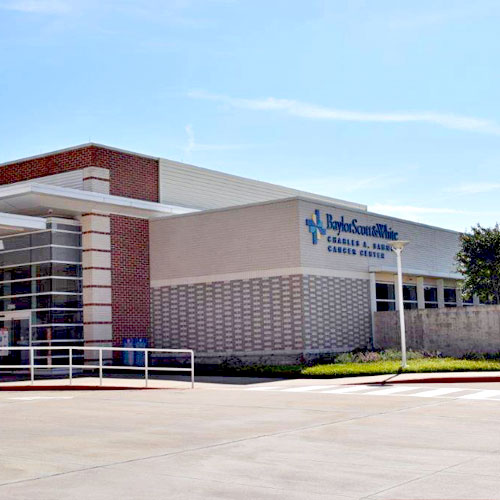
Baylor Scott & White Charles A. Sammons Cancer Center - Waxahachie
2380 N Interstate 35E , Waxahachie, TX, 75165- Monday: 7:30 am - 4:30 pm
- Tuesday: 7:30 am - 4:30 pm
- Wednesday: 7:30 am - 4:30 pm
- Thursday: 7:30 am - 4:30 pm
- Friday: 7:30 am - 4:30 pm
- Saturday: 7:30 am - 4:30 pm
- Sunday: 7:30 am - 4:30 pm
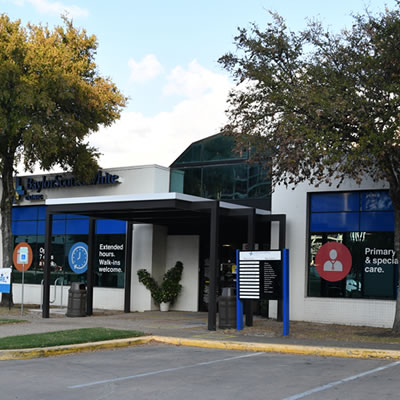
Baylor Scott & White Clinic - Austin North Burnet
2608 Brockton Dr , Austin, TX, 78758- Monday: 8:00 am - 5:00 pm
- Tuesday: 8:00 am - 5:00 pm
- Wednesday: 8:00 am - 5:00 pm
- Thursday: 8:00 am - 5:00 pm
- Friday: 8:00 am - 5:00 pm
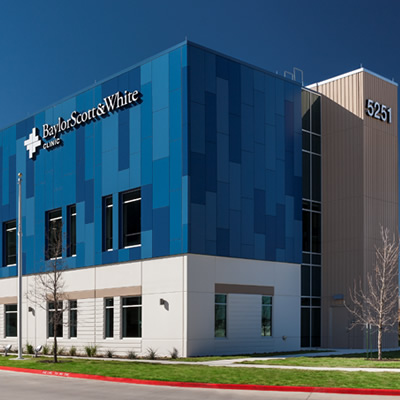
Baylor Scott & White Clinic - Austin Oak Hill
5251 US 290 , Austin, TX, 78735- Monday: 8:00 am - 5:00 pm
- Tuesday: 8:00 am - 5:00 pm
- Wednesday: 8:00 am - 5:00 pm
- Thursday: 8:00 am - 5:00 pm
- Friday: 8:00 am - 5:00 pm
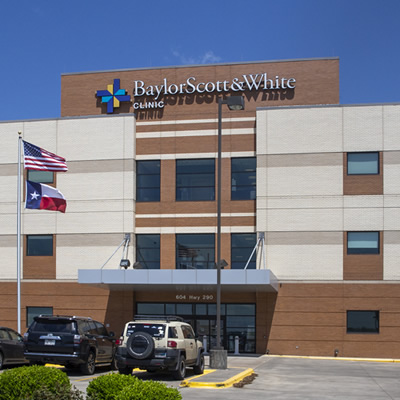
Baylor Scott & White Clinic - Brenham Hwy 290
604 US 290 , Brenham, TX, 77833- Monday: 7:00 am - 5:00 pm
- Tuesday: 7:00 am - 5:00 pm
- Wednesday: 7:00 am - 5:00 pm
- Thursday: 7:00 am - 7:00 pm
- Friday: 7:00 am - 5:00 pm
- Saturday: 8:00 am - 12:00 pm
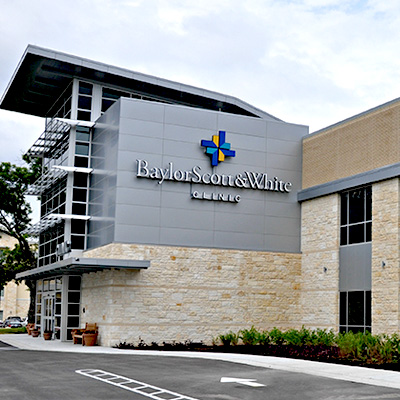
Baylor Scott & White Clinic - Cedar Park
910 E Whitestone Blvd , Cedar Park, TX, 78613- Monday: 8:00 am - 5:00 pm
- Tuesday: 8:00 am - 5:00 pm
- Wednesday: 8:00 am - 5:00 pm
- Thursday: 8:00 am - 5:00 pm
- Friday: 8:00 am - 5:00 pm
- Monday: 7:00 am - 5:00 pm
- Tuesday: 7:00 am - 5:00 pm
- Wednesday: 7:00 am - 5:00 pm
- Thursday: 7:00 am - 5:00 pm
- Friday: 7:00 am - 5:00 pm
- Saturday: 9:00 am - 2:00 pm

Baylor Scott & White Clinic - College Station Rock Prairie
800 Scott and White Dr , College Station, TX, 77845- Monday: 7:30 am - 5:00 pm
- Tuesday: 7:30 am - 5:00 pm
- Wednesday: 7:30 am - 5:00 pm
- Thursday: 7:30 am - 5:00 pm
- Friday: 7:30 am - 5:00 pm
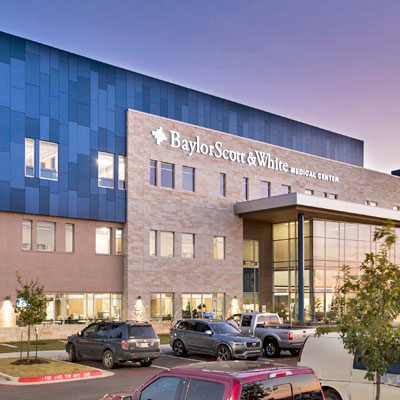
Baylor Scott & White Clinic - Pflugerville Medical Center
2600 E Pflugerville Pkwy Ste 200, Pflugerville, TX, 78660- Monday: 8:00 am - 5:00 pm
- Tuesday: 8:00 am - 5:00 pm
- Wednesday: 8:00 am - 5:00 pm
- Thursday: 8:00 am - 5:00 pm
- Friday: 8:00 am - 5:00 pm
- Monday: 7:30 am - 4:00 pm
- Tuesday: 7:30 am - 4:00 pm
- Wednesday: 7:30 am - 4:00 pm
- Thursday: 7:30 am - 4:00 pm
- Friday: 7:30 am - 4:00 pm

Baylor Scott & White Clinic - Pflugerville Medical Center Building 2
2600 E Pflugerville Pkwy Building 2, Pflugerville, TX, 78660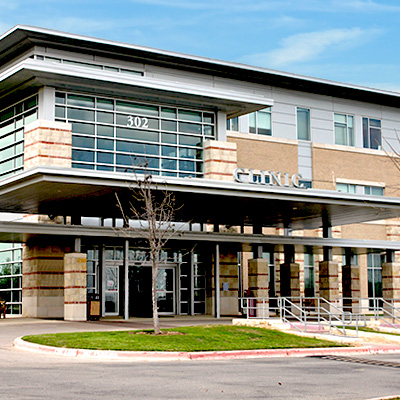
Baylor Scott & White Clinic - Round Rock 302 University
302 University Blvd , Round Rock, TX, 78665- Monday: 8:00 am - 5:00 pm
- Tuesday: 8:00 am - 5:00 pm
- Wednesday: 8:00 am - 5:00 pm
- Thursday: 8:00 am - 5:00 pm
- Friday: 8:00 am - 5:00 pm
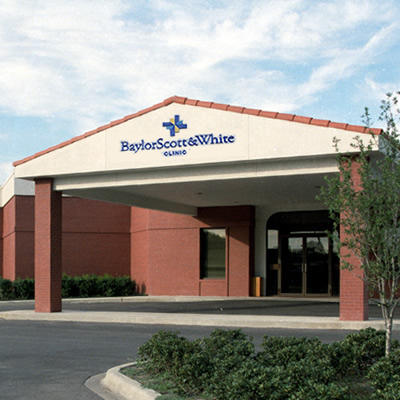
Baylor Scott & White Clinic - Santa Fe
1402 W Ave H , Temple, TX, 76504- Monday: 8:00 am - 5:00 pm
- Tuesday: 8:00 am - 5:00 pm
- Wednesday: 8:00 am - 5:00 pm
- Thursday: 8:00 am - 5:00 pm
- Friday: 8:00 am - 5:00 pm
- Monday: 7:00 am - 4:30 pm
- Tuesday: 7:00 am - 4:30 pm
- Wednesday: 7:00 am - 4:30 pm
- Thursday: 7:00 am - 4:30 pm
- Friday: 7:00 am - 4:30 pm
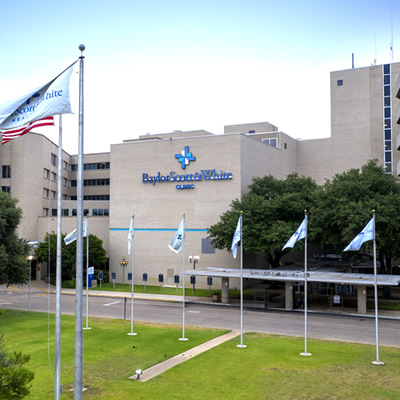
Baylor Scott & White Clinic - Temple
2401 S 31st St , Temple, TX, 76508- Monday: 8:00 am - 5:00 pm
- Tuesday: 8:00 am - 5:00 pm
- Wednesday: 8:00 am - 5:00 pm
- Thursday: 8:00 am - 5:00 pm
- Friday: 8:00 am - 5:00 pm
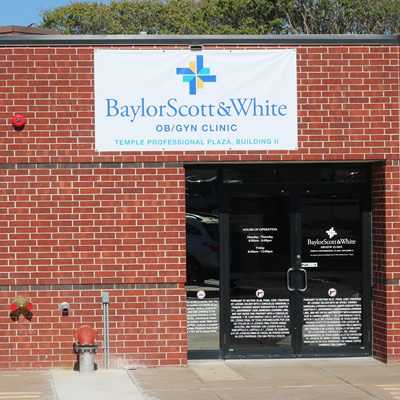
Baylor Scott & White Clinic - Temple Professional Plaza II
1713 SW H K Dodgen Loop Bldg II, Ste 100, Temple, TX, 76502- Monday: 8:00 am - 6:00 pm
- Tuesday: 8:00 am - 6:00 pm
- Wednesday: 8:00 am - 6:00 pm
- Thursday: 8:00 am - 6:00 pm
- Friday: 8:00 am - 12:00 pm

Baylor Scott & White Darlene G. Cass Women's Imaging Center at Junius
3900 Junius St Ste 200, Dallas, TX, 75246
Baylor Scott & White Darlene G. Cass Women's Imaging Center at North Dallas
9101 N Central Expy Ste 200, Dallas, TX, 75231
Baylor Scott & White Gynecology - Dallas
3600 Gaston Ave Ste 1158, Dallas, TX, 75246- Monday: 8:30 am - 4:30 pm
- Tuesday: 8:30 am - 4:30 pm
- Wednesday: 8:30 am - 4:30 pm
- Thursday: 8:30 am - 4:30 pm
- Friday: 8:30 am - 4:30 pm
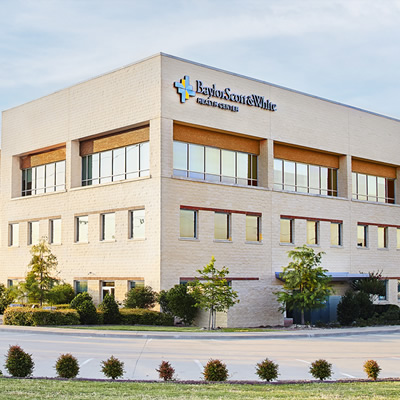
Baylor Scott & White Gynecology Specialists - Garland
7217 Telecom Pkwy Ste 290, Garland, TX, 75044- Monday: 7:45 am - 4:30 pm
- Tuesday: 7:45 am - 4:30 pm
- Wednesday: 7:45 am - 4:30 pm
- Thursday: 7:45 am - 4:30 pm
- Friday: 7:45 am - 3:30 pm

Baylor Scott & White Gynecology Specialists - Plano
4716 Alliance Blvd Pavilion II, Ste 700, Plano, TX, 75093- Monday: 7:45 am - 4:30 pm
- Tuesday: 7:45 am - 4:30 pm
- Wednesday: 7:45 am - 4:30 pm
- Thursday: 7:45 am - 4:30 pm
- Friday: 7:45 am - 3:30 pm

Baylor Scott & White Hillcrest Breast Center - Waco
50 Hillcrest Medical Blvd Bldg I, Ste 103-B, Waco, TX, 76712- Monday: 7:00 am - 6:30 pm
- Tuesday: 7:00 am - 6:30 pm
- Wednesday: 7:00 am - 6:30 pm
- Thursday: 7:00 am - 5:00 pm
- Friday: 7:00 am - 3:00 pm

Baylor Scott & White Hillcrest Maternal Fetal Medicine
120 Hillcrest Medical Blvd Ste 301, Waco, TX, 76712- Monday: 8:00 am - 5:00 pm
- Tuesday: 8:00 am - 5:00 pm
- Wednesday: 8:00 am - 5:00 pm
- Thursday: 8:00 am - 5:00 pm
- Friday: 8:00 am - 5:00 pm
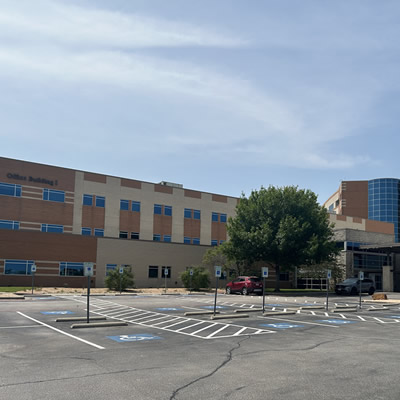
Baylor Scott & White Hillcrest Urology - Waco
50 Hillcrest Medical Blvd Office Building I, Suite 102, Waco, TX, 76712- Monday: 8:00 am - 5:00 pm
- Tuesday: 8:00 am - 5:00 pm
- Wednesday: 8:00 am - 5:00 pm
- Thursday: 8:00 am - 5:00 pm
- Friday: 8:00 am - 5:00 pm

Baylor Scott & White Liver and Pancreas Disease Center - Dallas
3410 Worth St Ste 850, Dallas, TX, 75246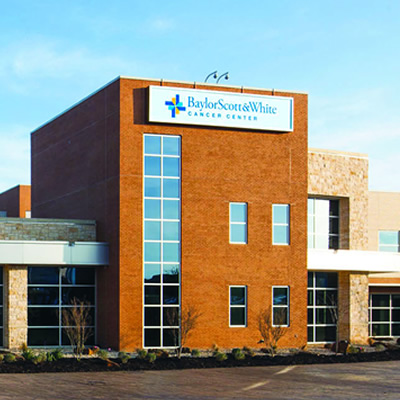
Baylor Scott & White McClinton Cancer Center - Waco
150 Hillcrest Medical Blvd , Waco, TX, 76712- Monday: 8:00 am - 5:00 pm
- Tuesday: 8:00 am - 5:00 pm
- Wednesday: 8:00 am - 5:00 pm
- Thursday: 8:00 am - 5:00 pm
- Friday: 8:00 am - 5:00 pm
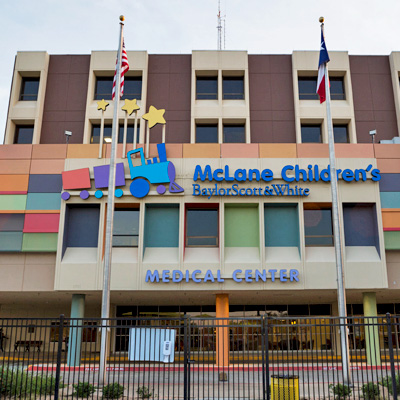
Baylor Scott & White McLane Children's Medical Center - Temple
1901 SW H K Dodgen Loop , Temple, TX, 76502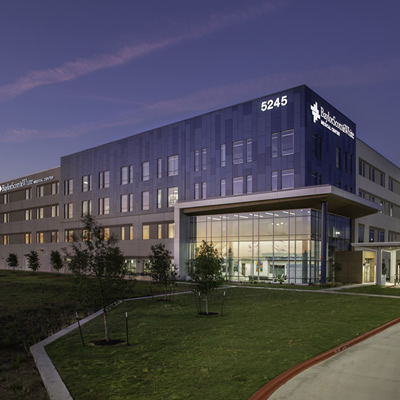
Baylor Scott & White Medical Center - Austin
5245 W US Hwy 290 Service Rd , Austin, TX, 78735
Baylor Scott & White Medical Center - Brenham
700 Medical Pkwy , Brenham, TX, 77833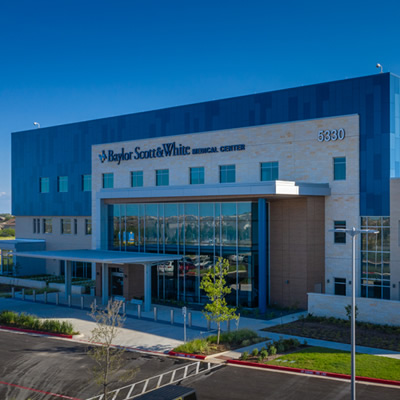
Baylor Scott & White Medical Center - Buda
5330 Overpass Rd , Buda, TX, 78610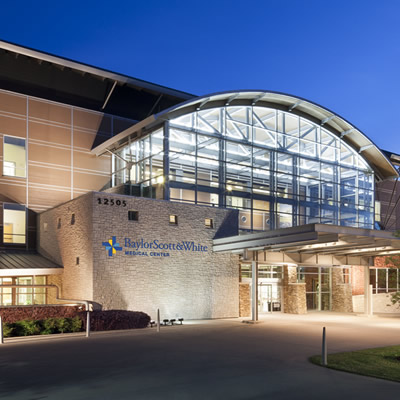
Baylor Scott & White Medical Center - Centennial
12505 Lebanon Rd , Frisco, TX, 75035
Baylor Scott & White Medical Center - College Station
700 Scott and White Dr , College Station, TX, 77845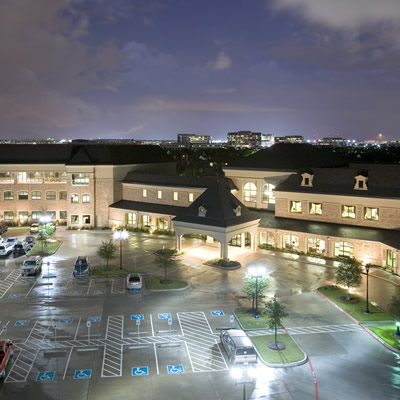
Baylor Scott & White Medical Center - Frisco
5601 Warren Pkwy , Frisco, TX, 75034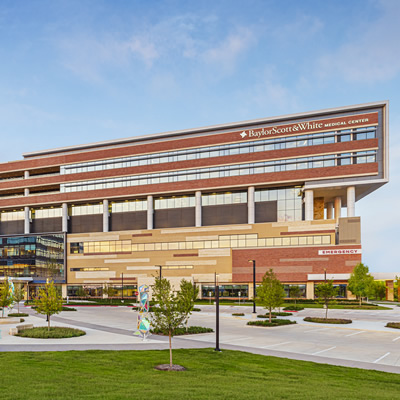
Baylor Scott & White Medical Center - Frisco at PGA Parkway
7600 Better Way , Frisco, TX, 75033
Baylor Scott & White Medical Center - Grapevine
1650 W College St , Grapevine, TX, 76051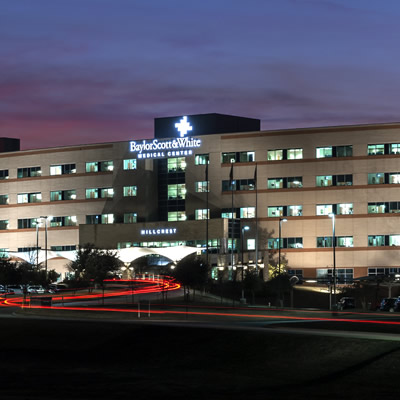
Baylor Scott & White Medical Center - Hillcrest
100 Hillcrest Medical Blvd , Waco, TX, 76712
Baylor Scott & White Medical Center - Irving
1901 N MacArthur Blvd , Irving, TX, 75061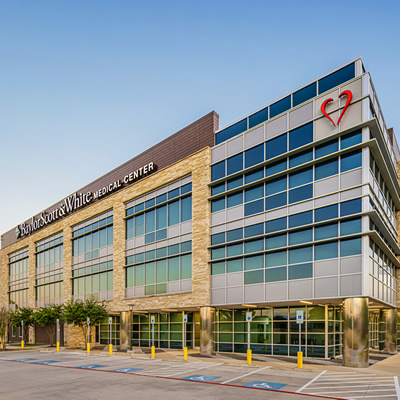
Baylor Scott & White Medical Center - Lake Pointe
6800 Scenic Dr , Rowlett, TX, 75088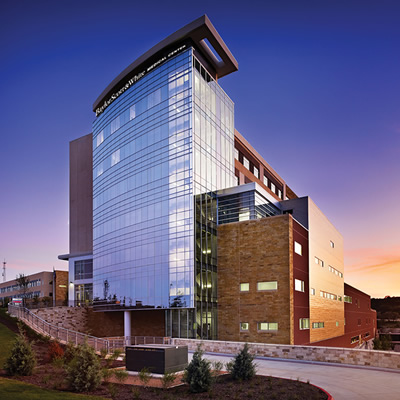
Baylor Scott & White Medical Center - Lakeway
100 Medical Pkwy , Lakeway, TX, 78738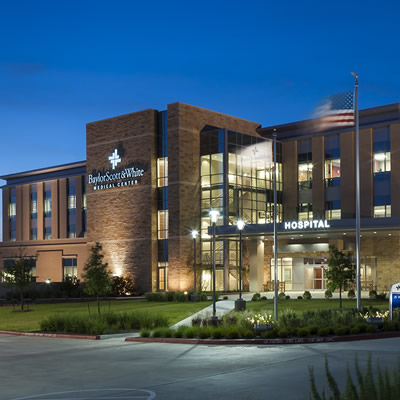
Baylor Scott & White Medical Center - Marble Falls
810 W State Hwy 71 , Marble Falls, TX, 78654
Baylor Scott & White Medical Center - McKinney
5252 W University Dr Highway 380 at Lake Forest Drive, McKinney, TX, 75071
Baylor Scott & White Medical Center - Pflugerville
2600 E Pflugerville Pkwy Ste 100, Pflugerville, TX, 78660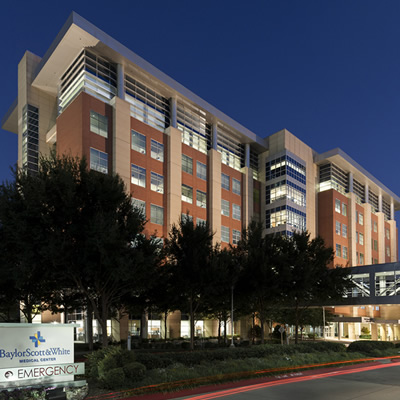
Baylor Scott & White Medical Center - Plano
4700 Alliance Blvd , Plano, TX, 75093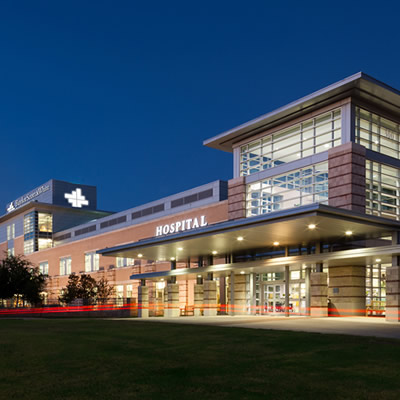
Baylor Scott & White Medical Center - Round Rock
300 University Blvd , Round Rock, TX, 78665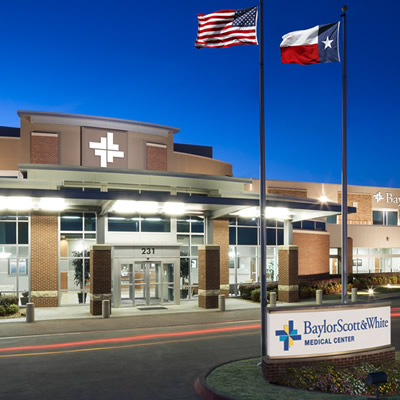
Baylor Scott & White Medical Center - Sunnyvale
231 S Collins Rd , Sunnyvale, TX, 75182